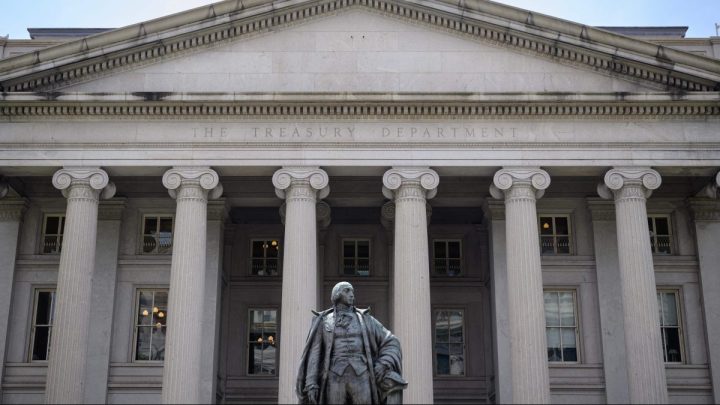
What will happen once the debt ceiling deal is passed?
What will happen once the debt ceiling deal is passed?

Assuming the debt ceiling deal makes its way through the Senate and to the president, we should be all good, right? Maybe. Probably. Maybe not though.
The Treasury Department is going have to make up for lost time and raise a whole lot of cash pretty quickly. That means some big moves within financial markets. The question is, what does that mean for the economy?
When the U.S. hit its debt ceiling back in January, it’s basically like the national credit card was cut off. So since then, the government’s been using the national debit card — paying cash and not borrowing. As a result, funds are now running very low.
“The Treasury Department has to replenish their checking account, basically,” said George Mateyo, chief investment officer at Key Private Bank.
Right now, he said there’s around $37 billion in the Treasury general account. On the day we hit the debt ceiling, there was more than $450 billion. So the government has to sell a lot of Treasuries to make that up.
“In addition, they have to repay some of the extraordinary measures they took out,” Mateyo said.
Extraordinary measures is the Treasury’s way of borrowing from Peter to pay Paul — delaying investments in government employee retirement funds, moving money from one agency to another just to pay the bills. All that’s another $270 billion the Treasury needs to raise.
So the grand total for how much the government needs to bring in is “in the trillion-dollar neighborhood over the next three to six months,” said Jonah Crane, a partner with Klaros Group. “So it’s a substantial amount.”
So what happens when the government needs to sell a trillion dollars’ worth of Treasurys and do it quickly? The money people are going use to buy them has to come from somewhere. Some analysts worry about that money coming out of bank accounts, which could be bad for banks.
“I think people worry that could affect the economy,” said Kathy Jones, chief fixed income strategist at Charles Schwab Center for Financial Research. “If the money comes from banks, then that might mean we have less reserves in the banking system and less willingness to lend, and less willingness to lend means a slower economy.”
Jones thinks this fear is overblown. So does Eric Winograd, chief economist at AllianceBernstein. “There’s plenty of liquidity available to buy these T-bills,” he said.
Over at the Federal Reserve, banks have special accounts where they put their extra cash. “Banks have parked more than $2 trillion in that account,” Winograd added.
And a lot of the money that investors haven’t been able to put in Treasurys recently has gone instead into something called money market funds. There’s another several trillion in there, and some of it could pretty easily be used to buy up Treasurys.
There’s a lot happening in the world. Through it all, Marketplace is here for you.
You rely on Marketplace to break down the world’s events and tell you how it affects you in a fact-based, approachable way. We rely on your financial support to keep making that possible.
Your donation today powers the independent journalism that you rely on. For just $5/month, you can help sustain Marketplace so we can keep reporting on the things that matter to you.


















